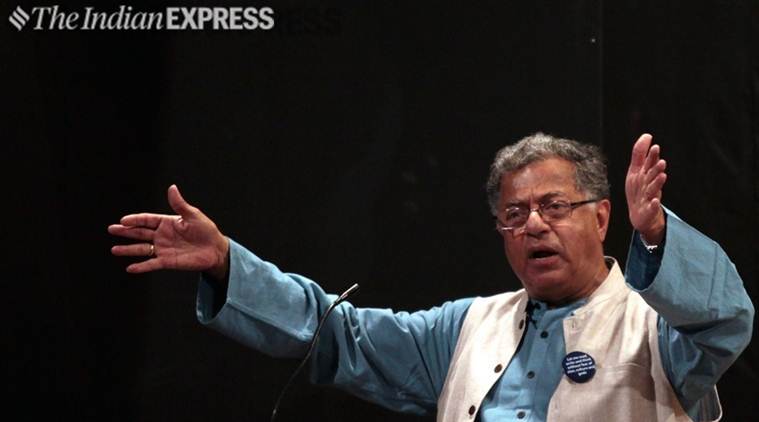
A legendary actor and playwright, Girish Karnad was one of the four giants who shaped Indian theatre since 1960s, playwright Satish Alekar said, as he mourned the death of the 81-year-old actor who died after multiple organ failure in Bengaluru on Monday.
The founder member of the Theatre Academy of Pune, Alekar said he knew Karnad personally since 1970s, when the latter was heading the Film and Television Institute of India (FTII) in Pune. “He was the last of four giants, after Vijay Tendulkar, Badal Sircar and Mohan Rakesh, who shaped Indian theatre since the 1960s,” Alekar said.
Calling him a “creator of powerful stories”, Alekar recounted the plays written by Karnad — Yayati (1961), which is a retelling of a tale from the Mahabharata; the critically-acclaimed Tughlaq (1964), as an allegory on an eccentric king to comment on the Nehruvian era; and Hayavadana (1971).
“Karnad reinvented myths and interpreted history with his strong belief in democracy of modern India. He was not afraid to criticise any ideology that he opposed. He was a great interpreter of the writings of other young writers.”
Remembering the legendary playwright as “an excellent cultural administrator”, Alekar said: “He was heading Sangeet Natak Akademi, Delhi, for five years where he introduced a health insurance scheme for ailing artistes.”
The works of Karnad inspired many theatre groups and artistes in Pune over the years.
It was in 1999 that city-based theatre director Mohit Takalkar made his debut with Yayati. In 2013, Takalkar’s group Aasakta Kalamanch staged an adaptation of one of Karnad’s final works, Benda Kaalu on Toast (Boiled Beans on Toast) in Marathi, titled Uney Purey Shahar Ek. The story of a city and its multitudes was also a part of the Bharat Rang Mahotsav, an international theatre festival organised by the National School of Drama in Delhi in 2014.
Vasudev Menon of The Drama Queens of Pune recalls growing up under the shadow of Karnad’s influence. “My theatre group in Edinburgh was starting out on our first production and we had decided to enact Bali – The Sacrifice by Karnad. The Edinburgh Fringe office needed a written consent from the playwright and I was, incidentally, travelling to Bengaluru at the time. I took the courage of gatecrashing into Karnad’s house and held my breath as he opened the doors,” Menon said.
He added that what struck him immediately was how simple and down to earth Karnad was. “The legend was completely devoid of any airs of fame. As we sat down, he made me a cup of tea. Here I was, starting out on my own theatre journey, sitting and sipping tea with one of my greatest influences in theatre,” Menon said.
Shy and affable, Karnad spoke about theatre in India and his plays. “He often corrected me on that personal pronoun, saying, quoting Roland Barthes, that the play was no longer his, it was now mine. He and Arundhati Nag were just starting out on a venture that would eventually become Ranga Shankara, and his excitement was uncontainable. He offered to show me around Ranga Shankara premises. We took an auto, and then walked a bit in the mild showers of Bengaluru winter evening. Unforgettable! I took home several lessons from that evening,” Menon said.
Chetan Shetty, who is a part of The Storytellers, a Pune group that narrates stories live to audiences, says Karnad’s Nagamandala, about a cobra who falls in love with a woman, and Hayavadana are integral parts of his repertoire. “Another of my favourite is The Fire and The Rain. Much of Karnad’s work is based on folk tales, which are real and relatable, but has a deep meaning,” Shetty said.